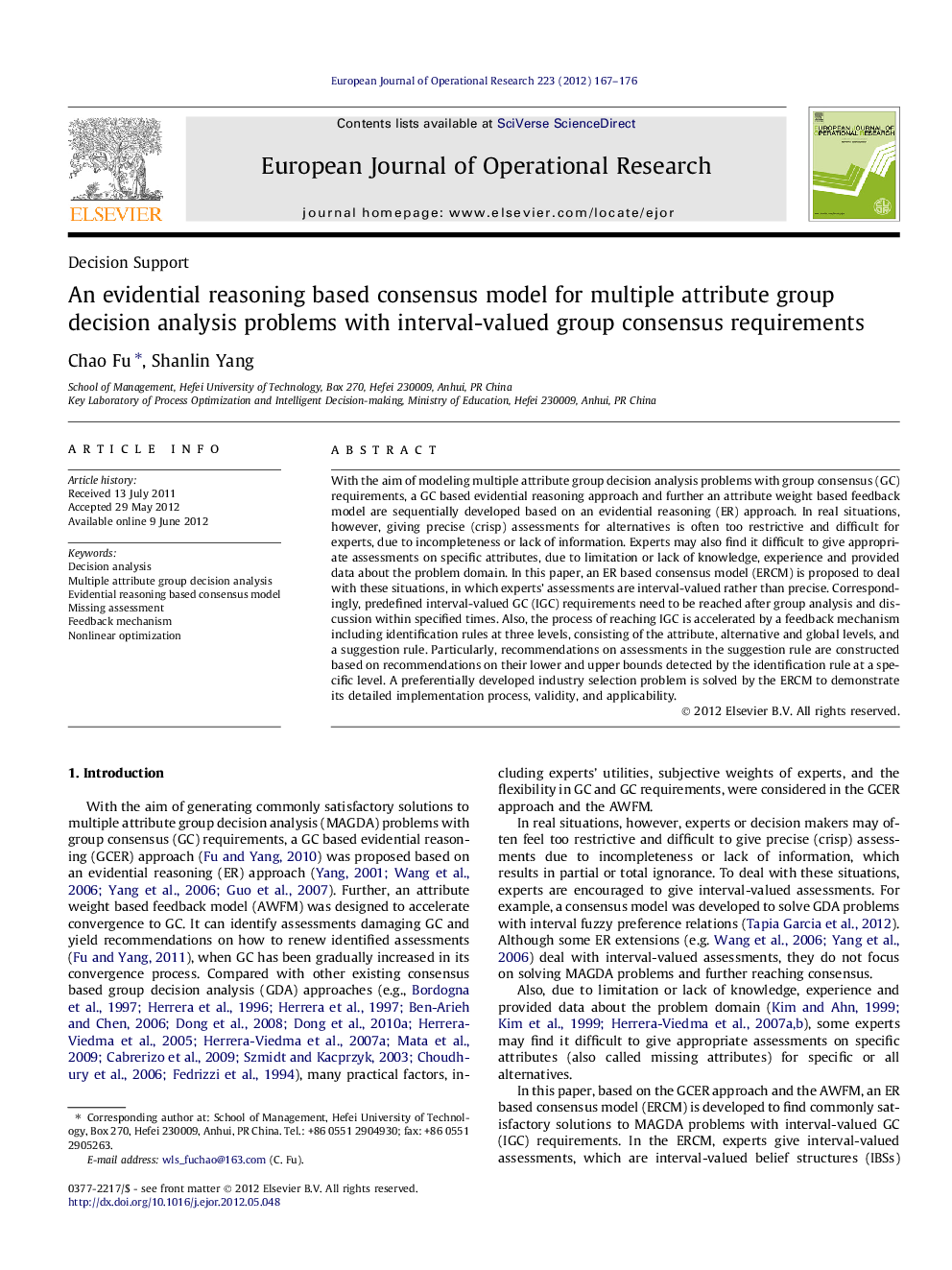| Article ID | Journal | Published Year | Pages | File Type |
|---|---|---|---|---|
| 478356 | European Journal of Operational Research | 2012 | 10 Pages |
With the aim of modeling multiple attribute group decision analysis problems with group consensus (GC) requirements, a GC based evidential reasoning approach and further an attribute weight based feedback model are sequentially developed based on an evidential reasoning (ER) approach. In real situations, however, giving precise (crisp) assessments for alternatives is often too restrictive and difficult for experts, due to incompleteness or lack of information. Experts may also find it difficult to give appropriate assessments on specific attributes, due to limitation or lack of knowledge, experience and provided data about the problem domain. In this paper, an ER based consensus model (ERCM) is proposed to deal with these situations, in which experts’ assessments are interval-valued rather than precise. Correspondingly, predefined interval-valued GC (IGC) requirements need to be reached after group analysis and discussion within specified times. Also, the process of reaching IGC is accelerated by a feedback mechanism including identification rules at three levels, consisting of the attribute, alternative and global levels, and a suggestion rule. Particularly, recommendations on assessments in the suggestion rule are constructed based on recommendations on their lower and upper bounds detected by the identification rule at a specific level. A preferentially developed industry selection problem is solved by the ERCM to demonstrate its detailed implementation process, validity, and applicability.
► Evidential reasoning based consensus model for group decision analysis (GDA). ► GDA problems with interval-valued group consensus (IGC) requirements. ► Recommendations on missing assessments to reach the maximal IGC. ► Feedback mechanism to generate recommendations on interval-valued assessments. ► The preferentially developed industry selection in a city, Anhui province, China.
